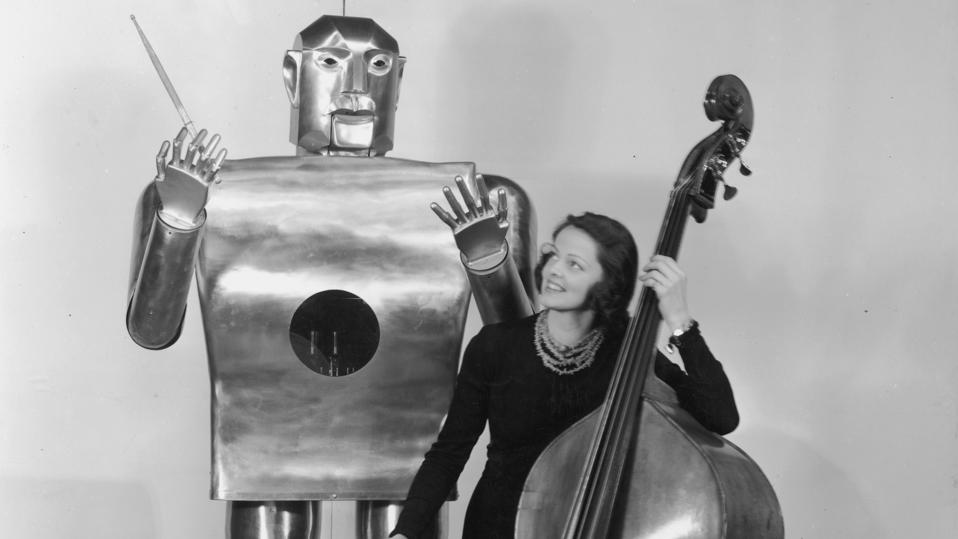Everyone agrees that AI is changing the game for management and leadership. But no one agrees on how.
The breathless predictions vary: AI will flatten hierarchies. It will demand faster decision-making. It will replace middle managers. It will make middle managers more essential than ever. It will automate human jobs. It will augment human teams. It will change everything… and possibly nothing. As Terence Mauri, the author of The Upside of Disruption and founder of the management think tank Hack Future Lab said, “The story of AI is still being written.”
Amid this noisy speculation, a new working paper from Harvard’s Ben Weidmann, Yixian Xu, and David Deming offers something refreshingly grounded: data. And better still, insight.
In a large, pre-registered experiment, the researchers had individuals lead teams made up either of humans or AI agents to solve collaborative puzzles. Some teams soared. Others floundered. The difference wasn’t whether the teammates were human or not—it was the quality of the human leader.
In fact, the impact of leadership was huge: swapping a weak leader for a strong one improved team performance by 0.65 standard deviations. That’s a 5x effect. And perhaps most striking of all: the best leaders excelled regardless of whether their teammates were people or AI. Good leadership, it turns out, scales across species.
The most successful leaders weren’t louder or more dominant. They asked more questions. They encouraged conversational turn-taking. They used “we” more than “I.” In short, they behaved like good facilitators—guiding the team’s thinking rather than directing it.
The Need For Human-Centered Leadership In The Age Of AI
This research offers more than a new experimental design. It offers a north star for navigating what is already one of the most confusing transformations in recent organizational history.
We know that AI is poised to change how we work. But that “how” is often too narrowly defined. The conversation tends to focus on task automation: Which jobs are safe? Which skills will still matter?
But the Harvard study reminds us that what really matters is how we work together. And in high-performing teams—whether composed of humans or machines—strong human leadership remains essential.
That’s not a feel-good sentiment. It’s empirical.
The researchers found that leadership skills like emotional intelligence, fluid reasoning, and self-awareness (including accurate self-assessment!) were strongly correlated with success. Demographics like age, education, and even typing speed? Not so much.
Even more interesting: leaders who had a clear sense of their own limitations—those who accurately evaluated their strengths and weaknesses—performed better (a point that tracks with many recent studies on humility). Why? Because they knew when to delegate, when to ask for help, and when to shut up and listen—even to an algorithm.
This reframes the conversation. The question isn’t just, “What can AI do?” It’s “What can I do best—and how do I team up smarter?”
As Mauri told me, “The biggest risk today isn’t AI. It’s leading with yesterday’s logic. Let’s not waste one of the biggest reframing moments in our lifetimes because the future isn’t just about tech and trends. It’s about mindsets and choices, too.”
So What Should Leaders Actually Do?
Based on the Harvard study and the work of Mauri and other pioneer in the space of leadership and AI, here are three takeaways for any leader looking to future-proof their skills:
- Double down on social skills. The best predictor of success in the Harvard study wasn’t technical expertise, but social intelligence. That includes listening, questioning, and sharing decision-making power.
- Get comfortable with co-piloting. AI is your teammate now—not your intern, and not your replacement. Think comparative advantage, not competition. AI is good at many things. You’re great at a few. Know which is which.
- Measure what matters. According to the researchers, leadership assessments based on social interaction (even with AI agents!) are far more predictive than resumes or demographic data. Maybe it’s time we updated our hiring and promotion playbooks.
The Leadership We Need Isn’t New, But It’s More Necessary
This latest research is a helpful step toward making sense of leadership in an AI-saturated workplace. But it also serves as a reminder that the fundamentals haven’t changed as much as we think.
Yes, the tools are new. But the task is the same: helping people (and now, machines) work better together.
As with most revolutions, it’s not the tech that determines success. It’s the people who figure out how to lead with it.

